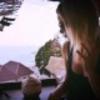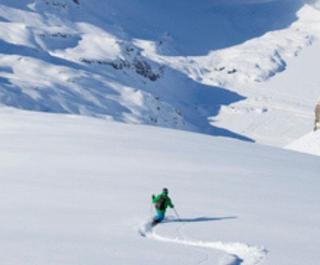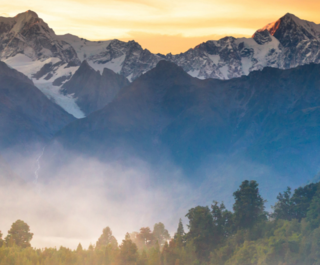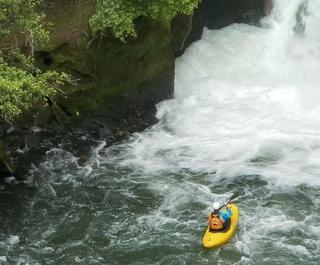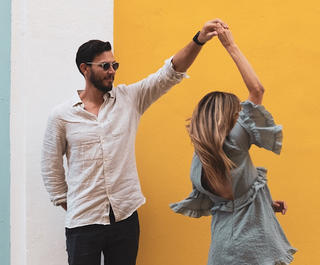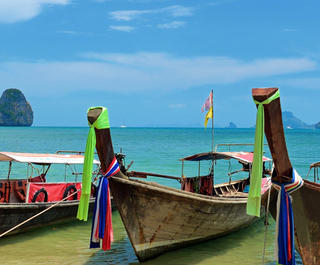
It’s 2am on the upper slopes of Mount Kilimanjaro, Tanzania, and I can’t feel my toes. What I can feel is my hair, frozen solid against my cheek. I turn around to look at my fiancé, whose beard has grown silver with ice, ageing him by decades. I have no air in my lungs to speak so I focus on just breathing instead, slowly, willing myself not to pass out. Then I look up into the African night, sharply iridescent with celestial sparks, and it’s like I’ve never seen stars before in my life.
Every person who climbs mountains has their reasons. I do it for the view. It’s for this reason my fiancé and I embark on a seven-month hiking trip; Mount Kilimanjaro is the final mountain on the itinerary – our Everest, so to speak.
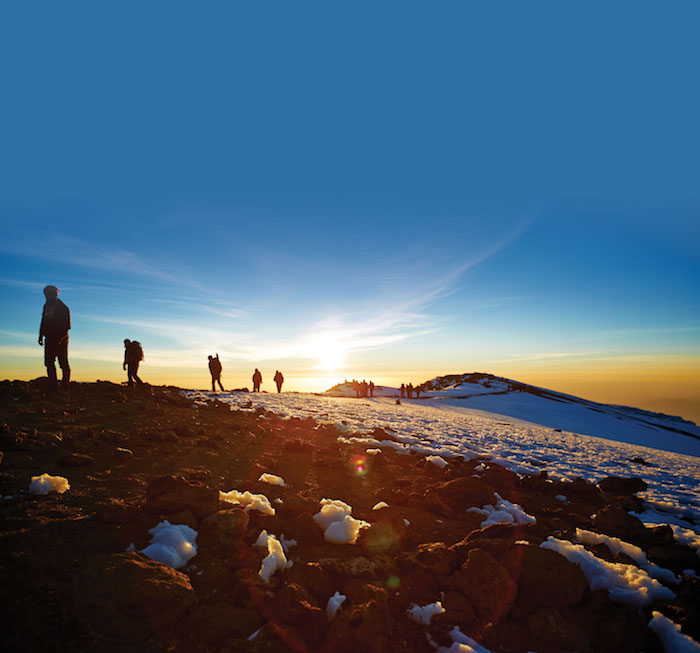 "Unlike Everest, Kilimanjaro is considered a non-technical climb, meaning it doesn't require mountaineering equipment such as ropes or crampons."
"Unlike Everest, Kilimanjaro is considered a non-technical climb, meaning it doesn't require mountaineering equipment such as ropes or crampons." Unlike Everest, Kilimanjaro is considered a non-technical climb, meaning it doesn’t require mountaineering equipment such as ropes or crampons. However, she demands respect – standing 5,895m above sea level, this is an extreme altitude trek. One of the famous Seven Summits, and the tallest freestanding mountain in the world, Kilimanjaro is so large that you climb through five distinct ecosystems: rainforest, heath, mooreland, alpine desert and the arctic zone.
You cannot reach the peak of Kilimanjaro independently, so do your research when choosing your tour operator. They should have a good safety record and client success rates, and be committed to a Porter Assistance Program, such as those of the International Mountain Explorers Connection. Your mountain crew are the heart, soul and backbone of the whole operation, and should be treated, and paid, fairly.
RELATED: 6 Places To Visit With Intrepid Before Everyone Else Does
You can climb all year round, and via several different routes, but it’s worth considering the experience you want. We choose the seven-day Machame Route and plan our climb for January, a month that statistically has higher visibility than others (again, I do it for the view), but also because it coincides with my 30th birthday.
We leave from Arusha, a dusty, colourful city in northern Tanzania and the gateway to the Serengeti, Ngorongoro Crater and Mount Meru (a popular option to pre-train for Kili), and drive to the base of Kilimanjaro. The air of the lush rainforest here feels thick, and I peel off clothing layers one by one until we reach the first camp where music and voices of all languages swell out from the mounds of colourful tents. We spend our evening with Hassan, a 19-year-old from Moshi who cheerfully brings our meals out and practises his English with us.
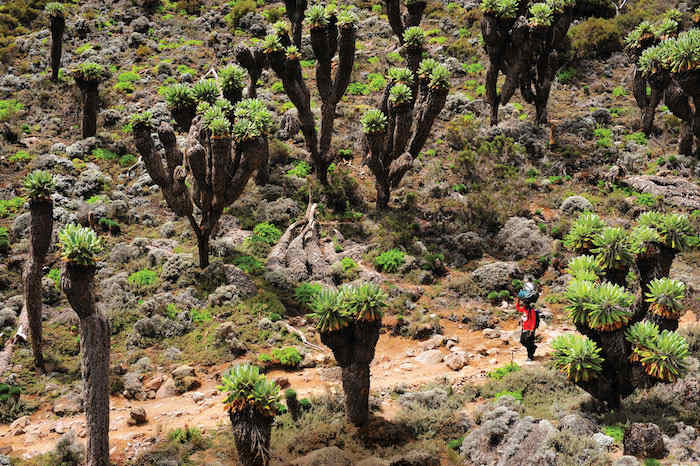 Kilimanjaro is so large that you climb through five distinct ecosystems.
Kilimanjaro is so large that you climb through five distinct ecosystems.As we ascend further through the strange, beautiful landscapes of Kilimanjaro, tussocks of almond-coloured grass and soft green heather, the giant alien-looking plants of the moorland and the lunar surface of the desert zone, the friendly chatter gives way to stretches of silence as we tackle our own mountains, literal and figurative.
Though the hiking is relatively easy with short days and a slow pace, the altitude makes sleeping at night increasingly difficult, and I develop a persistent headache. It goes without saying that you should be moderately fit to attempt this climb but for most hikers, the real challenge is the altitude. Water and carbohydrates, two of my favourite things, are the bread and butter of avoiding altitude sickness, and a little paracetamol goes a long way.
RELATED: Celebrating International Women's Day: The Rise of Solo Female Travel
On my birthday, I just want to feel warm. The wind in this zone is arctic and gusts under the skirts of our dinner tent as we force down potatoes. Under the squall outside, I hear singing, and our entire team bursts into the tent, glossy-cheeked and grinning widely, singing “Happy Birthday” in Swahili, with a half-lit birthday cake. Deeply moved (and just a little embarrassed), my heart swells – I feel very warm indeed.
The night of reaching the summit, the mood is sober; we set out just shy of midnight, following the twinkling breadcrumb trail of headlamps into the darkness. The temperature is sub-zero, and the pitch steep, but the sense of camaraderie is overwhelming. And then, we walk into a snowstorm – highly unusual for this time of year. They say Kilimanjaro is a shy mountain; shy she may be, but she certainly dances to the beat of her own drum. With no hope of a view at the top, I shut down every feeling but pure grit – I am determined to reach this peak.
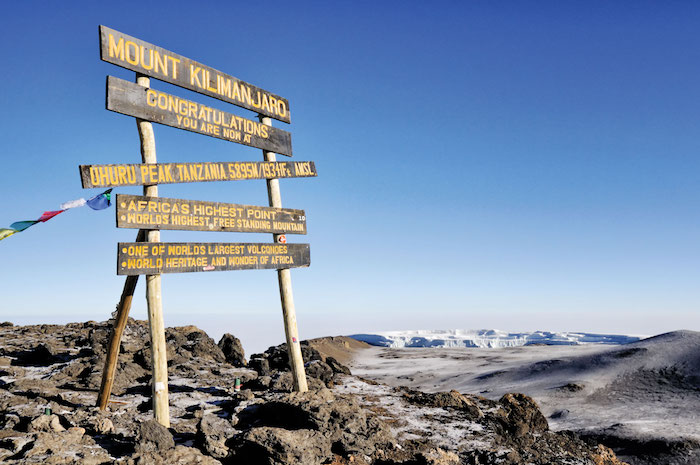 'Uhuru' means 'freedom' in Kiswahili.
'Uhuru' means 'freedom' in Kiswahili.And we do. At what must be sunrise (though it’s impossible to tell), we see the famous, now snow-crusted, sign that signals our arrival at Uhuru Peak. Every emotion comes rushing over me in a fast and visceral wave, and amid the hugging and congratulations, I am crying. ‘Uhuru’ means ‘freedom’ in Kiswahili, and though I can’t see more than a metre in front of me, I feel free.
RELATED: Make Your Next Vacation A 'Racecation'
With the dangers of weather and altitude, we don’t stay long, and start barrelling down the mountain. What takes six days to climb, takes one (painful) day to descend. My thoughts are of two things: a hot shower and a cold beer. Even in Africa, I am an Aussie girl at heart. Back at the base we clink sweating Kilimanjaro beer bottles together with our mountain crew, joining in a Swahili song that repeats the lyrics “Hakuna Matata”, and I smile – it really does mean “no worries”.

